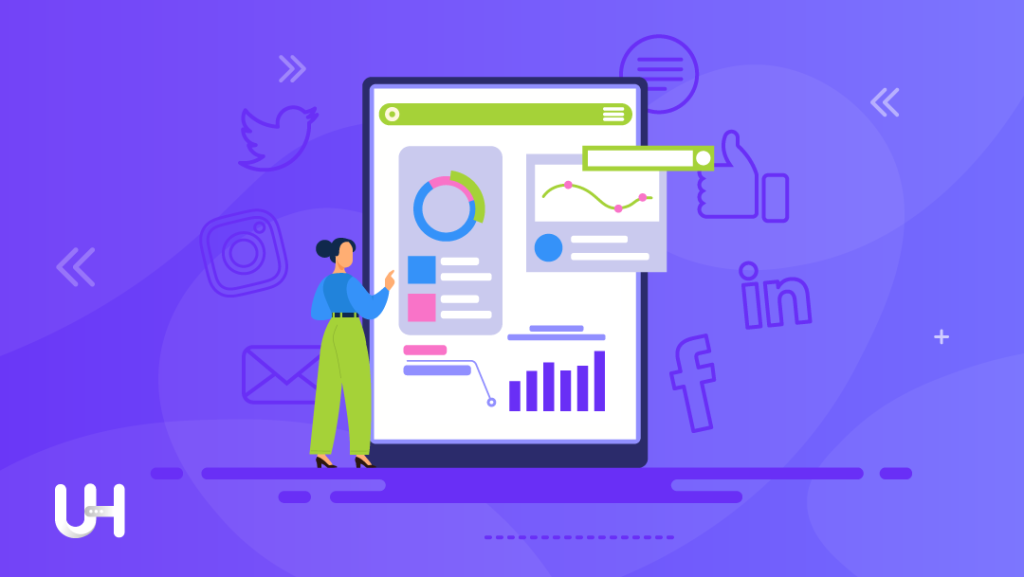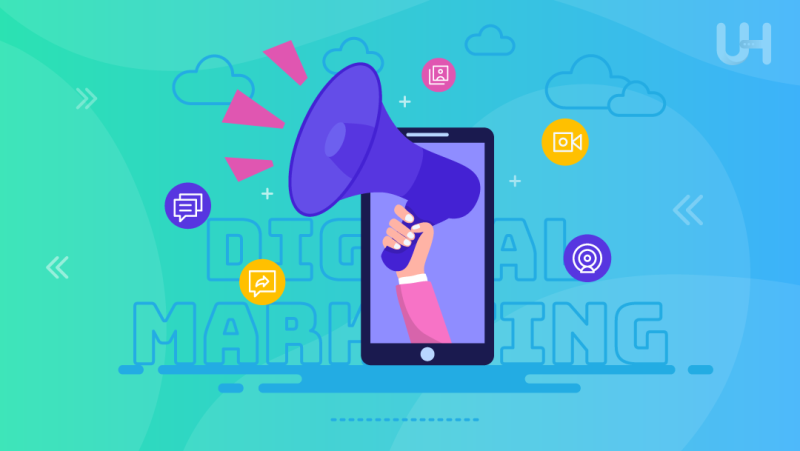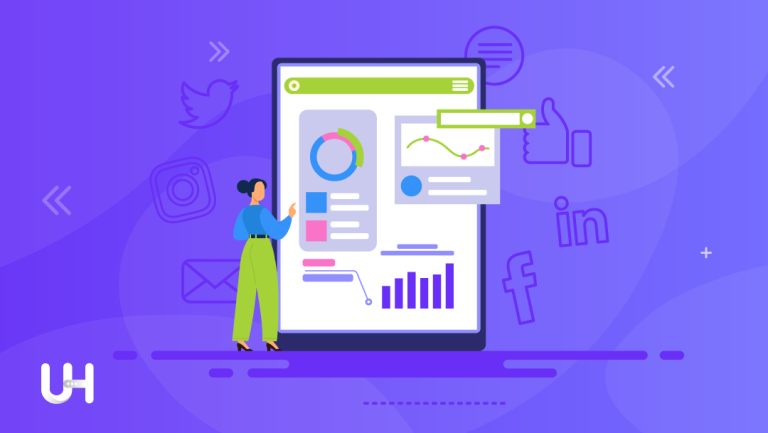Digital marketing has emerged as a game-changing tool for businesses. It encompasses a range of online strategies and tactics that help businesses connect with their target audience, promote their products or services, and achieve their marketing goals. From social media campaigns and email marketing to search engine optimization (SEO) and pay-per-click (PPC) advertising, digital marketing leverages the power of the internet to create meaningful interactions with consumers.
The importance of digital marketing cannot be overstated in our current business environment. As more consumers turn to the internet to research products, read reviews, and make purchases, businesses must establish a strong online presence to remain competitive. Digital marketing offers numerous advantages over traditional marketing methods, including the ability to reach a global audience, measure campaign performance in real-time, and tailor messages to specific demographics.
Whether you’re a business owner looking to expand your online presence with a digital marketing agency, a marketing professional seeking to stay updated with the latest trends, or a newcomer eager to learn about the field, this blog will help you understand everything about digital marketing.
What is Digital Marketing?
Digital marketing refers to the use of digital channels, platforms, and technologies to promote products, services, and brands to a targeted audience. It encompasses a wide range of online activities, including search engine optimization (SEO), content marketing, social media marketing, email marketing, pay-per-click marketing, and more. The goal of digital marketing is to connect with potential customers where they spend a significant amount of their time: on the internet.
When comparing digital marketing to traditional marketing, several key differences emerge. Traditional marketing relies on offline channels such as print media, television, radio, and direct mail to reach consumers. These methods, while still effective to some extent, often come with higher costs and limited targeting capabilities.
Digital marketing, on the other hand, utilizes online channels that provide greater flexibility, cost-effectiveness, and the ability to reach a global audience. Unlike traditional marketing, digital marketing allows for precise targeting and personalization, enabling businesses to deliver tailored messages to specific demographics based on their online behavior and preferences.
Benefits of Digital Marketing Strategy
The importance of digital marketing tactics in the modern era cannot be overstated. As more people turn to the internet for information, shopping, and social interaction, businesses must adapt to this shift to remain relevant and competitive. Digital marketing offers several key advantages that make it indispensable in today’s business landscape:
- Cost-Effectiveness: Digital marketing campaigns can be more affordable than traditional methods, offering a better return on investment (ROI) for businesses of all sizes.
- Measurable Results: With digital marketing, businesses can track and analyze the performance of their campaigns in real-time, gaining valuable insights into what works and what doesn’t. This data-driven approach allows for continuous optimization and improvement.
- Enhanced Targeting: Digital marketing enables precise audience targeting based on various criteria, such as demographics, interests, and online behavior. This ensures that marketing efforts reach the most relevant and engaged audience.
- Global Reach: The internet breaks down geographical barriers, allowing businesses with scalable hosting from Ultahost to reach a global audience and expand their market presence beyond local boundaries.
- Personalization: Digital marketing tools and techniques make it possible to create personalized marketing experiences for individual consumers, increasing engagement and conversion rates.
- Flexibility and Adaptability: Digital marketing campaigns can be quickly adjusted and optimized based on performance data and market trends, ensuring that businesses can respond to changes swiftly and effectively.
Elevate Your Customer Relationship Management Now!
Ready to streamline your customer relationship management? Integrating the best CRM hosting from UItaHost with your digital marketing enhances your business efficiency and customer interactions. Boost your productivity and improve customer satisfaction!
Types of Digital Marketing
Digital marketing encompasses a variety of strategies and techniques designed to engage and convert customers online. Here are the key components that form the foundation of a successful digital marketing strategy:
Search Engine Optimization (SEO)
Search Engine Optimization (SEO) is the process of optimizing your website to rank higher in search engine results pages (SERPs). The importance of SEO lies in its ability to increase organic traffic to your site, enhancing visibility and credibility. Effective SEO involves both on-page and off-page strategies. On-page SEO includes optimizing content, meta tags, and keywords, while off-page SEO focuses on building backlinks from reputable sites. Technical SEO, which involves improving site speed and mobile-friendliness, is also crucial for ranking well on search engines like Google.
Content Marketing
Content marketing involves creating and distributing valuable, relevant content to attract and engage a target audience. Its significance lies in its ability to build trust and authority, drive traffic, and generate leads. There are various elements of content marketing, including blog posts, videos, infographics, podcasts with internet radio hosting, and eBooks. Each type serves a different purpose, whether it’s educating customers, solving their problems, or entertaining them. Moreover, effective content marketing requires a strategic approach, focusing on producing high-quality content that resonates with your audience.
Social media marketing involves using social media platforms to promote products, services, and brand messages. Major platforms include Facebook, Instagram, Twitter, LinkedIn, and TikTok, each offering unique opportunities to reach and engage different demographics. Best social media marketing strategies include creating engaging and shareable content, posting consistently, interacting with followers, and using analytics to measure performance. Developing a social media strategy that aligns with your business goals is essential for success.
Pay-Per-Click (PPC) Advertising
PPC advertising is a model where advertisers pay a fee each time their ad is clicked. It’s an effective way to drive targeted traffic to your website quickly. Popular PPC platforms include Google Ads, Bing Ads, and social media advertising options like Facebook Ads and LinkedIn Ads. The benefits of PPC include immediate visibility, precise targeting, and budget control. To maximize the effectiveness of PPC campaigns, it’s important to conduct thorough keyword research. Moreover, write compelling ad copy and continuously monitor and optimize performance.
Email Marketing
Email marketing involves sending targeted messages to a group of subscribers via email. It’s a powerful tool for nurturing leads, building relationships, and driving sales. The benefits of email marketing include its cost-effectiveness, high ROI, and ability to deliver personalized content. Best practices for successful email campaigns include building a quality email list, crafting engaging subject lines and content and segmenting your audience for targeted messaging. Also, analyzing campaign performance to refine your strategy.
Affiliate Marketing
Affiliate marketing is a performance-based marketing strategy where businesses reward affiliates for driving traffic or sales through their marketing efforts. Affiliates promote products or services on their platforms and earn a commission for each conversion. The benefits of affiliate marketing include expanded reach, cost-effectiveness, and leveraging the influence of affiliates to build credibility. To implement an effective affiliate marketing program, businesses need to select the right affiliate program and provide them with the necessary tools and resources. Also, monitor their performance to ensure alignment with brand values.
Influencer Marketing
Influencer marketing involves collaborating with influencers—individuals with a significant following and influence over a specific audience—to promote products or services. The significance of influencer marketing lies in its ability to reach niche audiences and build trust through authentic endorsements. To leverage influencers effectively, businesses should identify relevant influencers whose audience aligns with their target market, establish clear collaboration terms, and measure the impact of influencer campaigns on brand awareness and sales.
Each component of digital marketing plays a crucial role in creating a comprehensive and effective marketing strategy. By understanding and utilizing these elements, businesses can enhance their online presence, engage with their audience, and achieve their marketing objectives.
Tools and Technologies in Digital Marketing

Digital marketing relies heavily on various tools and technologies to streamline processes, enhance effectiveness, and measure performance. Here’s an overview of some essential tools and the role of emerging technologies in shaping the future of digital marketing.
Overview of Essential Tools
- Google Analytics: Google Analytics is a powerful tool for tracking and analyzing website traffic. It provides insights into user behavior, traffic sources, conversion rates, and much more. By understanding these metrics, businesses can optimize their websites and marketing campaigns to improve performance.
- SEMrush: SEMrush is an all-in-one digital marketing tool that helps with SEO, PPC, content marketing, and competitive analysis. It provides valuable data on keyword rankings, backlinks and website audits. Moreover, allowing businesses to refine their strategies and stay ahead of competitors.
- Hootsuite: Hootsuite is a social media management platform that allows businesses to schedule posts, monitor social media activity, and analyze performance across multiple platforms. It simplifies the process of managing social media campaigns and helps ensure consistent and effective engagement.
- Mailchimp: Mailchimp is an email marketing platform that helps businesses design and send email campaigns, manage subscriber lists, and analyze email performance. It offers automation features that save time and increase the efficiency of email marketing efforts.
Benefits of Digital Marketing
Digital marketing offers numerous advantages over traditional marketing methods, making it an essential component of modern business strategies. Here are some key benefits:
Cost-Effectiveness Compared to Traditional Marketing
Digital marketing is often more affordable than traditional marketing methods such as TV, radio, or print advertising. Online campaigns can be tailored to fit any budget, allowing businesses of all sizes to compete effectively. Tools like pay-per-click (PPC) advertising enable marketers to set specific budgets and only pay when users click on their ads, ensuring that every dollar spent contributes directly to engagement.
Measurable Results and ROI
One of the most significant advantages of digital marketing is the ability to track and measure results in real-time. Analytics tools like Google Analytics, SEMrush, and HubSpot provide detailed insights into campaign performance, including traffic sources, conversion rates, and user behavior. This data allows marketers to calculate the return on investment (ROI) accurately. Marketing data also makes it easier to justify marketing spend and make informed decisions about future campaigns.
Enhanced Targeting and Personalization
Digital marketing enables precise targeting of specific demographics, interests, and behaviors. Platforms like Facebook, Google Ads, and LinkedIn allow businesses to create highly targeted campaigns that reach the right audience. Personalization goes a step further by delivering customized content and offers based on individual user preferences and behaviors. Furthermore, enhancing engagement and conversion rates.
Global Reach and Accessibility
The internet connects businesses with a global audience, breaking down geographical barriers and expanding market reach. Digital marketing campaigns can be accessed from anywhere in the world, allowing companies to tap into new markets and attract international customers. This global accessibility is particularly beneficial for e-commerce businesses and those looking to scale their operations beyond local boundaries. Partnering with a skilled market making software developer can further enhance this reach by providing the tools and technology needed to optimize trading activities in global markets.
Flexibility and Adaptability
Digital marketing campaigns can be quickly adjusted and optimized based on performance data and changing market conditions. Unlike traditional marketing, which often requires long lead times and significant upfront investment, digital marketing allows for real-time modifications. This flexibility ensures that marketing efforts remain relevant and effective, even in a rapidly evolving digital landscape. Additionally, the ability to experiment with different strategies and tactics through A/B testing and other methods helps businesses find the most effective approaches for their specific goals.
Conclusion
Digital marketing is an essential component of any online business’s strategy, offering unparalleled opportunities for growth, engagement, and success. Digital marketing encompasses a variety of strategies. It includes SEO, content marketing, social media marketing, PPC advertising, email marketing, affiliate marketing, and influencer marketing. Each of these components plays a crucial role in reaching and resonating with your target audience.
To support your outbound marketing efforts, ensure your communications are reliable and cost-effective with email hosting from UltaHost. Experience top-quality service and seamless email management without breaking the bank.
FAQ
What is digital marketing?
Digital marketing refers to the use of online channels and technologies to promote products, services, and brands to reach and engage with potential customers.
Why is digital marketing important?
Digital marketing is crucial because it allows businesses to reach a global audience, measure the effectiveness of campaigns in real-time, target specific demographics, and achieve a higher return on investment (ROI) compared to traditional marketing methods.
What are the key components of digital marketing?
Key components include Search Engine Optimization (SEO), content marketing, social media marketing, pay-per-click (PPC) advertising, email marketing, affiliate marketing, and influencer marketing.
How does SEO contribute to digital marketing?
SEO helps businesses improve their website’s visibility in search engine results, driving organic traffic and enhancing online presence.
What are some essential tools for digital marketing?
Essential tools include Google Analytics for website analytics, SEMrush for SEO and competitive analysis, Hootsuite for social media management, and Mailchimp for email marketing.










